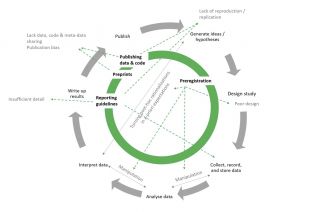
www.buildingsandcities.org/insights/news/zero-carbon-videos.html
Mainstreaming Zero Carbon - Videos

Watch the presentations and respondents on "Zero Carbon: Can Built Environment Education Deliver?" outlining how built environment education and training needs to urgently change.
Two launch events in the US and UK of the latest B&C special issue Education and Training: Mainstreaming Zero Carbon considered the options for a rapid transition within universities
and training colleges to equip students with new
knowledge and skills to create a zero-carbon built environment.
We are at a critical transition in the built environment education - specifically how built environment programs, practitioners, and the architectural, engineering and construction (AEC) industry are addressing zero carbon agenda and what more needs to be urgently done. Solutions involve the coordination of rapid and innovative responses to a wide range of issues: educational and training pedagogies, curricular change, governance and policy leadership, changes to the roles of teachers and certification bodies. The peer reviewed articles make clear that a variety of integrated actions are needed: policy interventions for structural reform, improved validation requirements, more streamlined pedagogical practices, broader ethical considerations, interdisciplinary and collective working practices, upskilling carbon literacy and abilities by organisations and professionals across the built environment industry.
The peer reviewed articles make clear that a variety of integrated actions are needed: policy interventions for structural reform, improved validation requirements, more streamlined pedagogical practices, broader ethical considerations, interdisciplinary and collective working practices, upskilling carbon literacy and abilities by organisations and professionals across the built environment industry.
Presentations - Zero Carbon: Can Built Environment Education Deliver?
To promote a wider international dialogue, two virtual events considered what constitutes a rapid change agenda and roadmap for built environment education. One event was hosted by a leading UK building industry think tank, The EDGE on 1 February 2021 (chaired by Bill Gething, University of the West of England) and the other was hosted on 8 February 2021 by the Carbon Leadership Forum, a leading edge organisation for change in the US, (chaired by Anthony Hickling, Carbon Leadership Forum).
Speakers
Short presentations were made by 4 (of the 10) special issue authors :
Fionn Stevenson (Univ of Sheffield) & Alison Kwok (Univ of Oregon): "Introduction & key findings"
Gavin Killip (Univ of Oxford): "A reform agenda for construction education and practice"
Kathryn Janda (University College London): "Preparing 'middle actors' to deliver zero-carbon building transitions"
Malini Srivastava (Univ of Minnnesota): "Cooperative learning in design studios: a pedagogy for net-positive performance"
Respondents
This is followed by four key respondents from industry who briefly consider how education and training needs to change and their role(s) in a roadmap for change and embracing the following questions:
- What actions are needed now to change education?
- Who needs to take these actions?
David Gloster, Director of Education, Royal Institute of British Architects (RIBA)
Lynne Jack, Heriot Watt University & Past President, Chartered Institution of Building Services Engineers (CIBSE)
Marsha Maytum, Leddy Maytum Stacy Architects, Educator, 2019 American Institute of Architects (AIA) COTE Chair
Steph Carlisle, Carbon Leadership Forum, University of Pennsylvania
These presentations were followed in each event by a lively Q&A session. There was broad agreement in each case that urgent action and coordination are needed at many levels: within and between professional institutions, by course accreditation bodies and within universities and departments to upskill educators and integrate the curriculum. It was also acknowledged that there are different ways of doing this which should involve a more interdisciplinary approach, one that is open to effective improvisation, and with an ability to reach out beyond traditional industry and disciplinary silos.
The videos showcased here capture the various speakers' presentations, but not the audience dialogue.


Latest Commentaries
COP30 Report
Matti Kuittinen (Aalto University) reflects on his experience of attending the 2025 UN Conference of the Parties in Belém, Brazil. The roadmaps and commitments failed to deliver the objectives of the 2025 Paris Agreement. However, 2 countries - Japan and Senegal - announced they are creating roadmaps to decarbonise their buildings. An international group of government ministers put housing on the agenda - specifying the need for reduced carbon and energy use along with affordability, quality and climate resilience.
Building-Related Research: New Context, New Challenges
Raymond J. Cole (University of British Columbia) reflects on the key challenges raised in the 34 commissioned essays for Buildings & Cities 5th anniversary. Not only are key research issues identified, but the consequences of changing contexts for conducting research and tailoring its influence on society are highlighted as key areas of action.